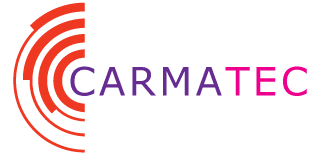Node.js power many modern real-time web applications that you are likely already familiar with. In addition to building online games, messengers, video platforms, and more, JavaScript is a scalable JavaScript runtime environment. In addition to developing rich user interfaces (UIs), companies like Netflix, Uber, Trello, and others also use Node.
As a result of Node.js frameworks, Node possesses a great deal of versatility. There are countless frameworks available, so how do you decide which one is the best for your project? Find out more by reading on.
Node.js Frameworks: What Are They?
In Node.js, frameworks are built-in tools and accelerators that extend the functionality of the language. To aid fellow developers in their projects, these frameworks are built by the Node.js developer community itself.
Frameworks such as Node.js not only save time and effort but also enhance your projects with additional functionality. Also, they ensure a standardized codeset and increase productivity across your development team.
There are different types of Node frameworks. The best choice depends on your unique project requirements since they excel at various functions.
Best NodeJS Frameworks for App Development in 2025
Node.js is a popular open-source, cross-platform JavaScript runtime environment that enables developers to build scalable, high-performance applications. To simplify the development process, developers often use Node.js frameworks. Here are some of the best NodeJS frameworks for app development in 2025:
- Express.js: Express.js is the most popular Node.js framework for building web applications. It is a minimalist framework that provides a simple, yet powerful set of features for building web applications, APIs, and microservices. It is highly customizable and can be extended with third-party plugins.
- Nest.js: Nest.js is a progressive Node.js framework for building efficient and scalable server-side applications. It uses modern JavaScript and incorporates concepts from Angular to provide a modular and testable structure for building large-scale applications.
- Koa.js: Koa.js is a lightweight and highly modular Node.js framework that is designed for building web applications and APIs. It has a minimalistic approach to middleware and uses async functions for better error handling and control flow.
- Hapi.js: Hapi.js is a powerful and flexible Node.js framework that is ideal for building large-scale applications, APIs, and microservices. It provides a rich set of plugins and tools for building robust and secure applications.
- Meteor.js: Meteor.js is a full-stack JavaScript framework that uses Node.js on the server-side and provides a set of integrated tools and libraries for building real-time web and mobile applications.
- LoopBack: LoopBack is a powerful Node.js framework for building APIs and microservices. It provides a set of tools and features for building scalable and secure APIs with minimal coding.
- Adonis.js: Adonis.js is a full-stack Node.js framework that provides a set of tools and conventions for building scalable and maintainable web applications. It is inspired by Laravel and Ruby on Rails and uses modern JavaScript features.
These are just a few of the best Node.js frameworks for app development in 2025. Each framework has its own strengths and weaknesses, so it’s important to choose the right one based on your project requirements and development goals.
How to Choose the Best NodeJS Framework for 2025
Choosing the best NodeJS framework for 2025 can be a challenging task because there are many options available, each with its own unique features and benefits. Here are some factors to consider when selecting a Node.js framework for your project:
- Project requirements: Consider the specific needs of your project, including the type of application you are building, the complexity of the project, and the scalability requirements. Some frameworks are better suited for specific types of projects.
- Community support: Look for a framework with a strong community of developers who contribute to the framework and provide support. A large community means more resources, tutorials, and plugins that can help you with your project.
- Performance: Consider the performance of the framework, including its speed, scalability, and resource usage. The performance of the framework can have a significant impact on the overall performance of your application.
- Documentation: Look for a framework with clear and comprehensive documentation, including tutorials, guides, and examples. This will make it easier to learn and work with the framework.
- Security: Security is a crucial factor to consider when selecting a Node.js framework. Look for a framework with built-in security features and good practices to prevent common security issues.
- Third-party integrations: Consider the availability of third-party integrations and libraries that can be used with the framework. This can help you add additional functionality to your project without having to reinvent the wheel.
Conclusion
In conclusion, Node.js is a powerful and versatile platform for app development, offering a wide range of frameworks to choose from. Choosing the right framework for your Node.js app development project depends on your specific needs and requirements. Each of these frameworks has its own unique set of strengths and weaknesses, so it’s important to evaluate them carefully before making a decision. With the right Node.js framework, you can build scalable, high-performance, and feature-rich applications quickly and easily.













